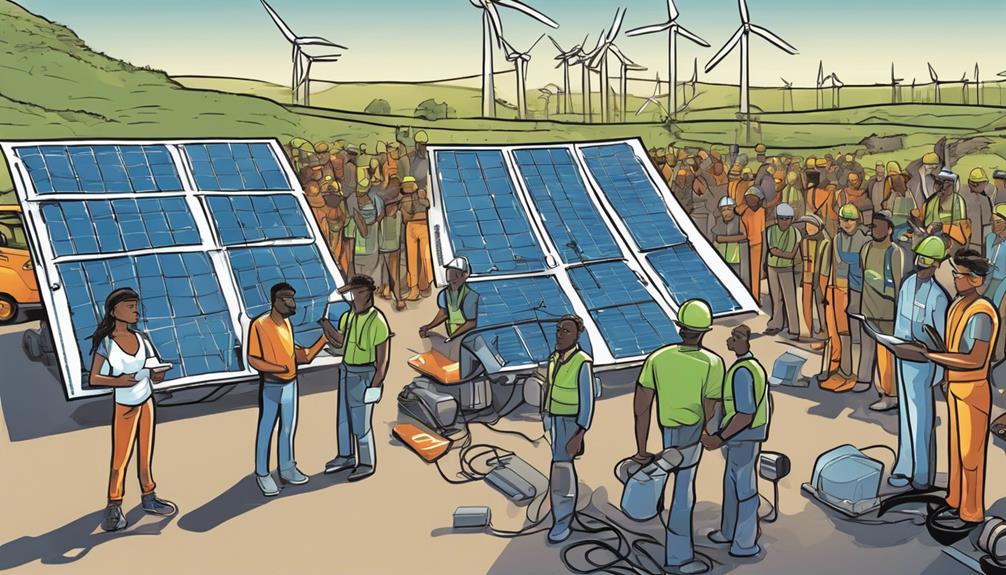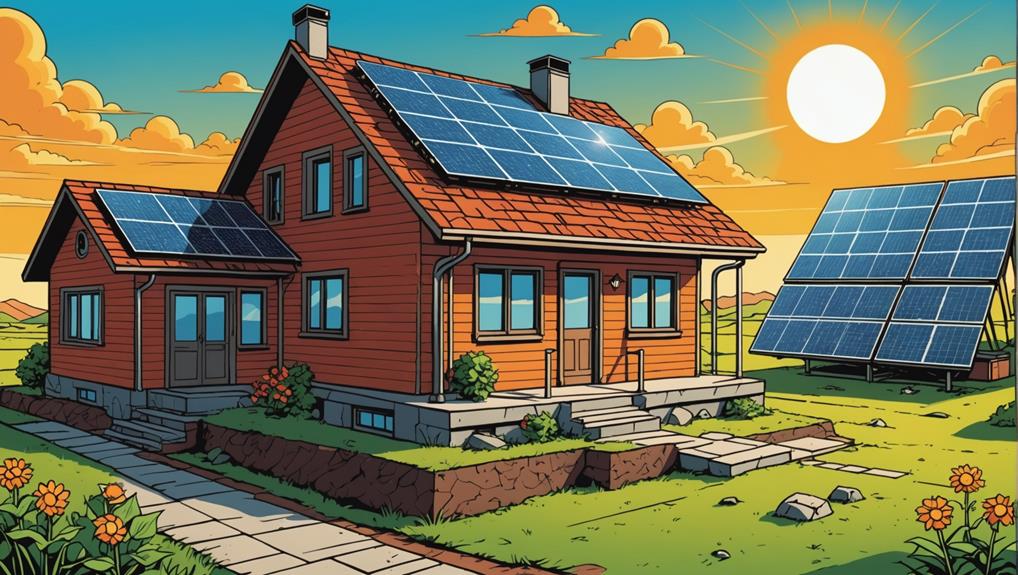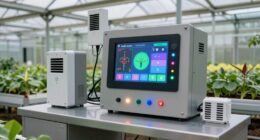As I explore the world of solar panels, I'm excited to discover how they're revolutionizing sustainability and eco-friendliness. With high-performance cells achieving over 20% efficiency, thin-film panels offering flexibility, and ongoing research pushing boundaries, the industry is transforming fast. Not only do solar panels help combat climate change and carbon emissions, but they also require innovative recycling and disposal strategies to minimize environmental harm. As I dig deeper, I'm finding that sustainable practices like closed-loop production and design-for-recyclability principles are essential for a greener future – and there's still so much more to uncover.
Key Takeaways
- High-performance solar panels maximize efficiency, reducing environmental impact and promoting sustainability.
- Recycling and proper disposal strategies minimize waste and prevent toxic material release.
- Closed-loop production and take-back programs facilitate sustainable energy progression and resource conservation.
- Design-for-recyclability principles and circular economy establishment are crucial for eco-friendly solar panels.
- Ongoing research and innovations in solar panel technologies drive sustainability and eco-friendliness forward.
Key Takeaways

As I delve into the world of solar panels, four key points stand out:
- They offer a sustainable and environmentally responsible solution.
- Require proper disposal and recycling.
- Are continuously advancing in technology.
- Necessitate collaboration between manufacturers, policymakers, and consumers to establish a well-functioning recycling industry.
Solar panels provide a clean source of energy, reducing our reliance on fossil fuels and mitigating climate change. However, their disposal and recycling are vital to prevent environmental harm and waste. The technology is constantly improving, making solar panels more efficient and accessible.
Advancing Solar Panel Technologies

Driven by the need for sustainable energy solutions, researchers and manufacturers are continually pushing the boundaries of solar panel technologies, resulting in significant advancements in efficiency, accessibility, and overall performance. I'm excited to see the innovations that are transforming the industry.
- High-performance IBC cells have achieved over 20% efficiency, a substantial improvement from previous models.
- Thin-film solar panels are now more lightweight, flexible, and easier to transport, making them ideal for a wider range of applications.
- Ongoing research aims to further improve efficiency and performance, ensuring that solar panels remain a viable solution for our energy needs.
Environmental Impact and Mitigation

I've come to realize that maximizing efficiency is important for reducing the environmental impact of solar panels. While they offer numerous benefits like helping with climate change and reducing carbon emissions, there are challenges to take into account.
Increased temperatures, degraded air quality, and impact on plant growth are all potential drawbacks. Factors like albedo, cloud cover, and panel efficiency affect solar energy reliability, making research important to minimize environmental harm and wildlife interference.
As the demand for solar panels grows, it's crucial to address these concerns. By prioritizing efficiency and mitigating negative impacts, we can ensure a sustainable energy future. It's up to us to make a positive difference and protect the environment for generations to come.
Recycling and Disposal Strategies

I'm now shifting my focus to the essential matter of recycling and disposing of solar panels, which is just as significant to sustainability as their efficient operation.
As the demand for solar panels continues to increase, it's pivotal that we develop innovative and eco-friendly disposal methods. This not only reduces waste in landfills but also conserves valuable resources.
- Recycling prevents the release of toxic materials into the environment, ensuring a safer planet for future generations.
- Innovations in recycling methods, such as separating glass from cells and exploring thermal recycling processes, are vital in minimizing environmental harm.
- By prioritizing proper recycling and disposal strategies, we can promote a sustainable energy progression and protect our planet's natural resources.
Sustainable Practices for the Future

As I look to the future, it's evident that adopting sustainable practices is essential to guaranteeing the longevity of solar panel technology and promoting a truly eco-friendly energy shift.
We must prioritize closed-loop production, where recycled materials are used to manufacture new panels, reducing waste and conserving resources. Additionally, implementing take-back programs and design-for-recyclability principles will facilitate the recycling process.
It's vital to establish a circular economy for solar panels, where waste becomes a valuable resource. By embracing these sustainable practices, we can minimize environmental harm, promote a responsible energy shift, and secure a brighter future for generations to come.
Frequently Asked Questions
How Do Solar Panels Perform in Extreme Weather Conditions Like Hurricanes?
When I think about solar panels in extreme weather conditions like hurricanes, I wonder how they'll hold up. Thankfully, modern panels are designed to withstand harsh weather, with secure mounting systems and durable materials to minimize damage.
Can Solar Panels Be Used to Generate Power in Space Exploration?
"I'm stuck on Earth, worrying about recycling solar panels, while you're asking about generating power in space? Ironically, yes, solar panels can be used in space exploration, but we need to tackle terrestrial sustainability first."
What Is the Average Lifespan of a Residential Solar Panel System?
"I've found that the average lifespan of a residential solar panel system is around 25-30 years, with some systems lasting up to 40 years or more with proper maintenance and quality installation."
Can Solar Panels Be Integrated Into Building Architecture and Design?
"Cutting to the chase, yes, solar panels can be seamlessly integrated into building architecture and design, allowing for a sleek, modern aesthetic while harnessing renewable energy, and I'm excited to see this trend take off."
Are There Any Government Incentives for Individuals to Install Solar Panels?
Yes, many governments offer incentives for individuals to install solar panels, like tax credits, rebates, and net metering laws, making it more affordable and beneficial for me to switch to renewable energy.
Conclusion
As I conclude my journey into the world of solar panels, I'm left with more questions than answers. What breakthroughs will tomorrow's innovations bring?
How will we overcome the recycling challenges that lie ahead?
One thing is certain: the fate of our planet hinges on our ability to harness the power of the sun. The future of sustainability hangs in the balance, and I'm excited to see what's on the horizon.









